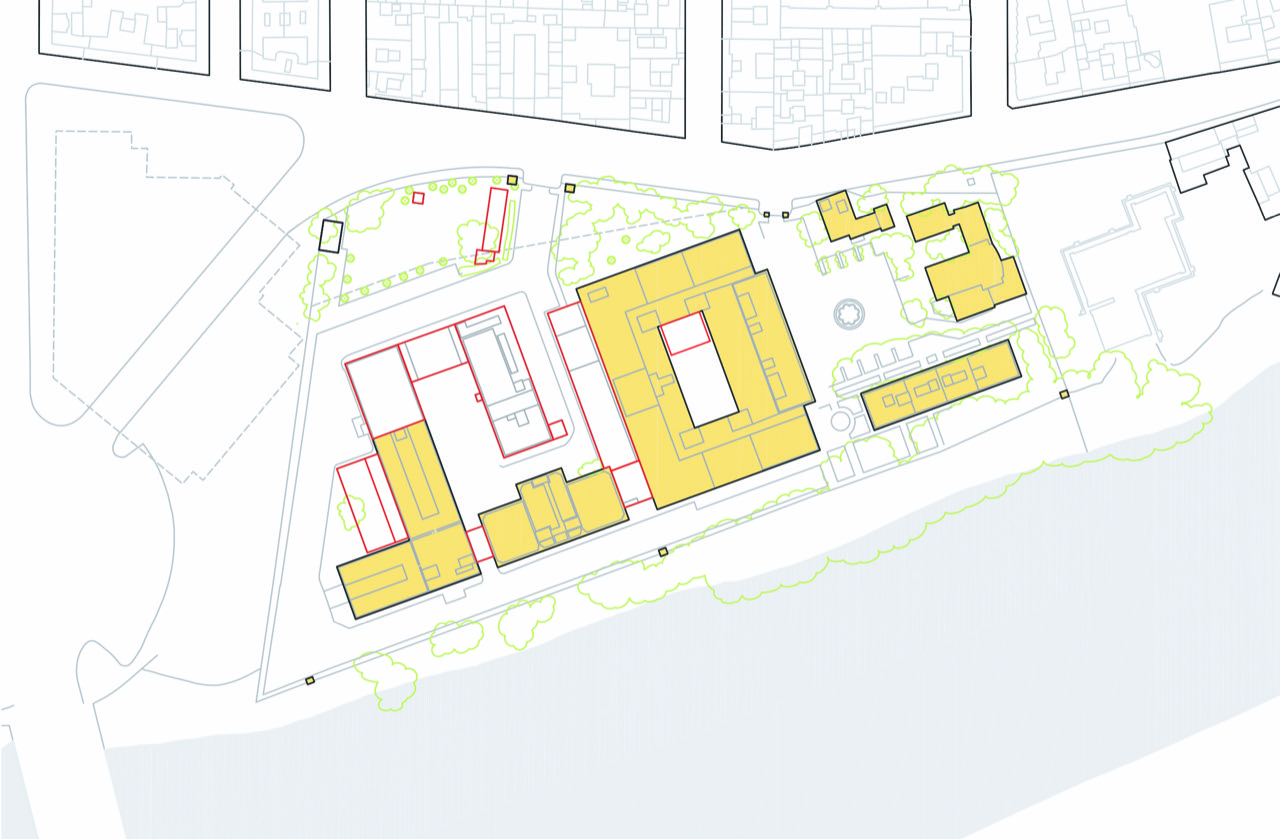Emerging Heritage

View of the Altadis Tobacco Factory from the right bank of the River Guadalquivir; Source: Daniel Navas Carrillo

Aerial view of some of the Altadis factory buildings; Source: Goolzoom

Identification of the factory buildings of greatest industrial heritage value (yellow) Source: Value assessment report of the Altadis Tobacco Factory. the Andalusian Historical Heritage Institute (IAPH).
The definition of emerging heritage is based on the conceptual evolution that the concept of heritage has undergone throughout the 20th and 21st centuries. In recent decades, heritage practice has advanced over the consideration of cultural asset. The notion of social construction of heritage has been consolidated by shifting attention from the material concreteness of objects to the subject that demands them. We are also facing a process notably influenced by the speed at which changes and social transformations are performing nowadays.
Therefore, the monumentalist approach of last century has given way to increasingly broader and more complex heritage considerations that advance through new values and meanings. In this context, assets that had not yet aroused interest and attention among heritage professionals emerge with force. It is a legacy linked, among others, to industrial history, to productive activities and technological advances, to the different manifestations of contemporary culture, to the underwater, paleontological, ethnological and environmental fields, to the new patterns of territoriality and even associated with political and/or military conflicts.